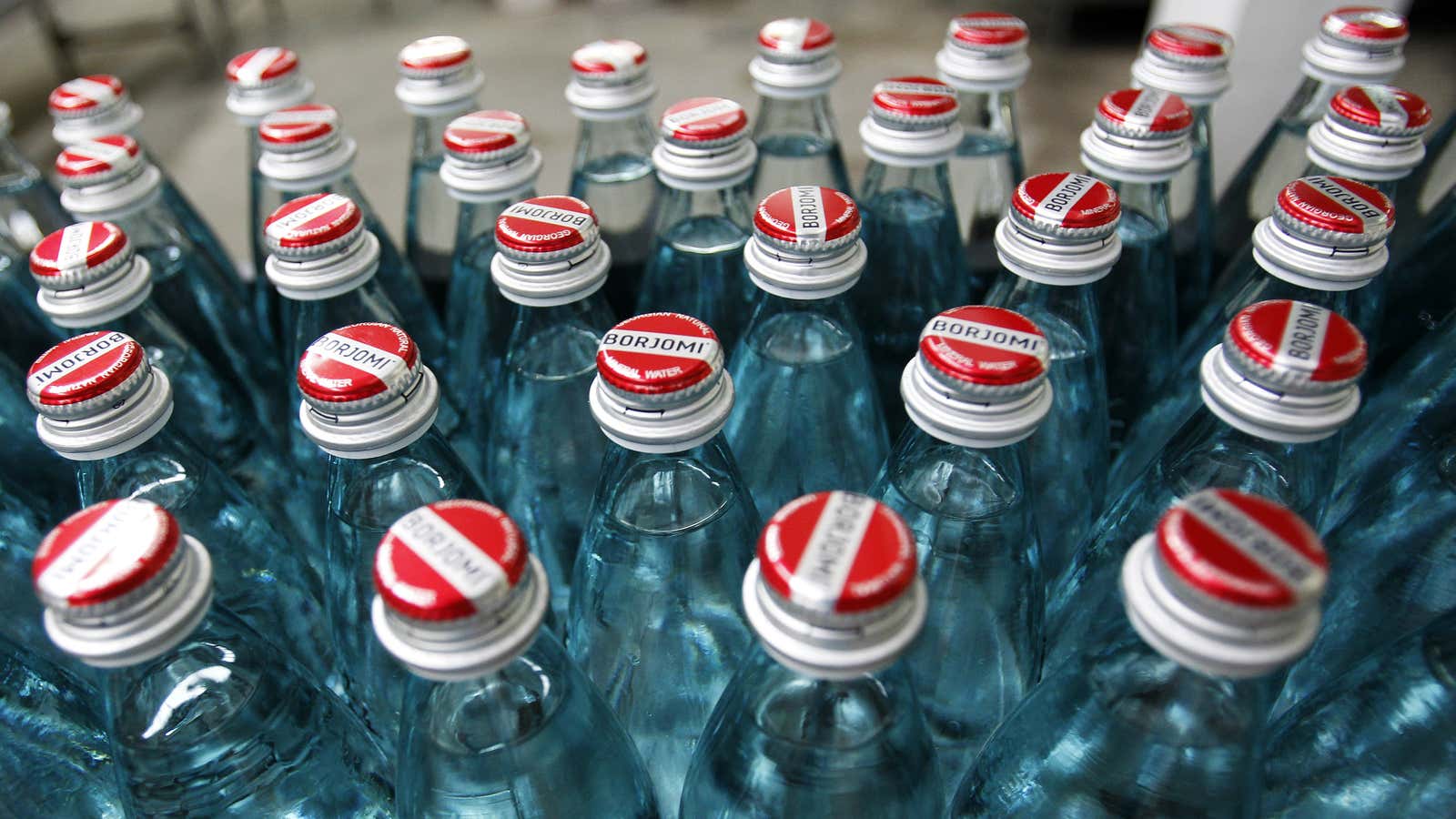It’s not economical or environmentally friendly, but that’s not stopping US consumers from soaking up more bottled water than ever.
So many Americans turned to the product in 2015 that it was finally poised to eclipse soda, which has been linked by health advocates to the rise of obesity and other chronic illnesses in the US. Consumption of bottled water has spiked more than 50% over the last decade.
But people are turning to bottled water not just out of concern for chronic illness—it’s also because of safety concerns, especially in light of the water crisis in Flint, Michigan that exposed as many as 12,000 children to high lead content due to corroded pipes.
According to the US Environmental Protection Agency, the nation’s waterline infrastructure needs more than $384 billion of investment (pdf) over the next 20 years in order to maintain safety and dependable operation. There is no national database for tracking the level of lead in drinking water due to aging pipelines, not even for US school systems. That’s been an issue for Detroit, Newark, Seattle, Los Angeles, and Baltimore.
In Baltimore, in particular, the school system for the last 10 years has opted to buy about $450,000 in bottled water annually for its students, in lieu of spending millions to fix or replace its pipes, Politico reported.
But does it make any sense to switch from tap water to the bottled stuff?
“We always advocate for people to go for tap water over bottled water, for a number of reasons,” said Paul Pestano, an analyst at Environmental Working Group, an advocacy organization. “You’re paying more money for a product you don’t know where it came from. Often it’s from the same source as tap water.”
Bottled-water companies aren’t required to tell consumers what filtration or purification techniques they use, for example. The environmental group suggests instead switching to filtration systems (some more than others) or asking their local government for a copy of its annual water quality report.
And if the economic reasoning isn’t enough to convince people, EWG and others have urged people to consider the environmental impact bottled water has on the earth and its wildlife.
